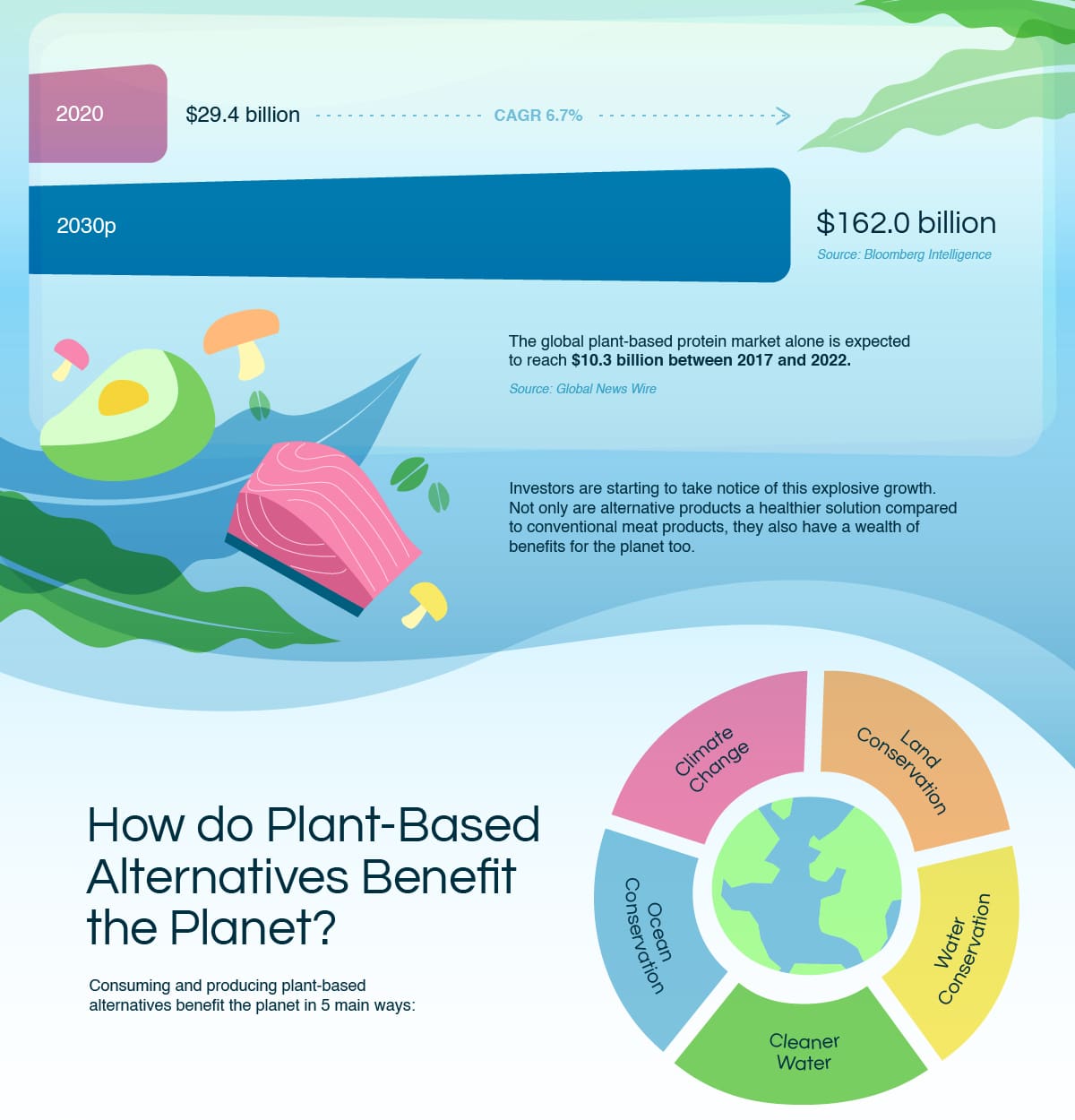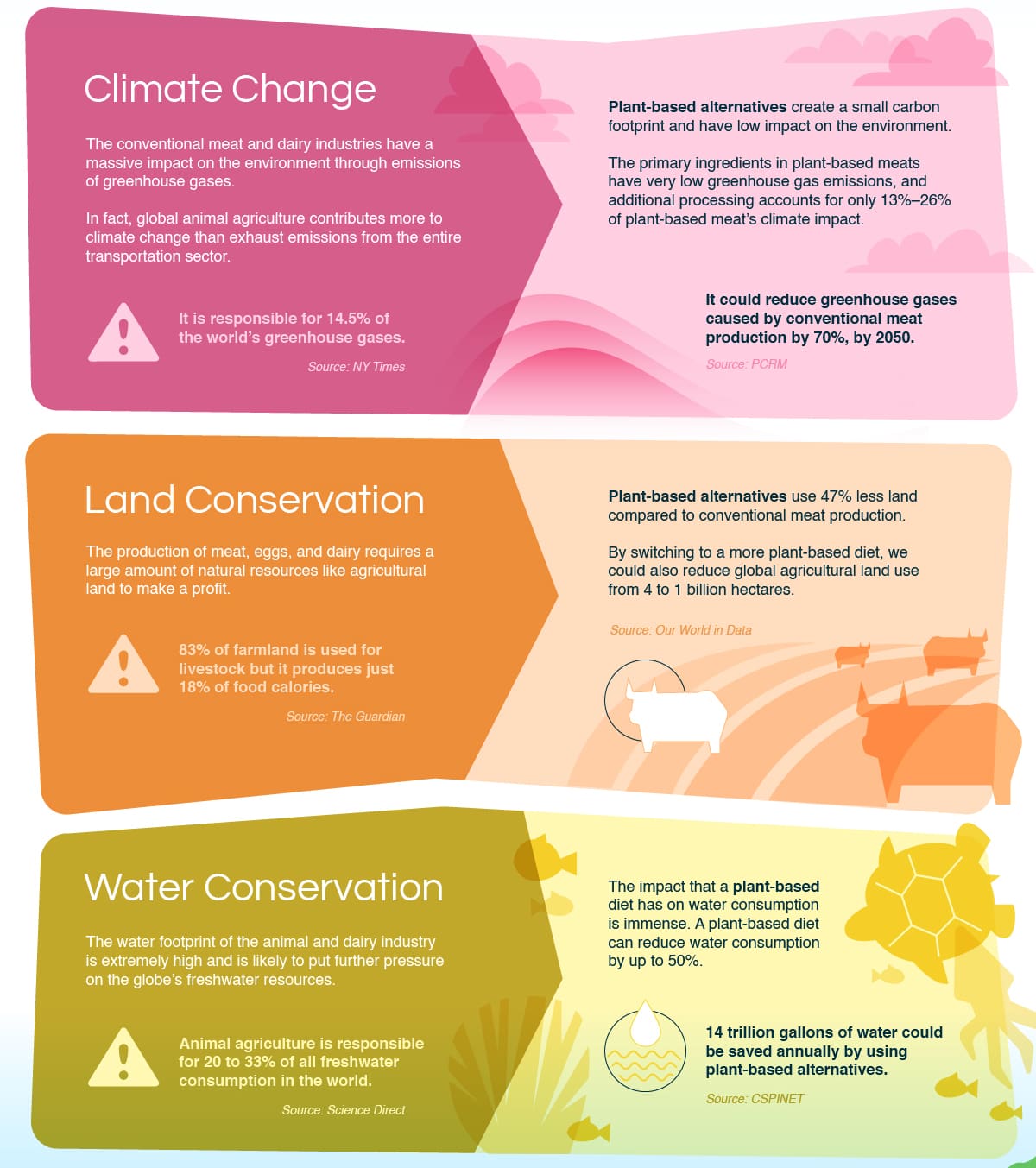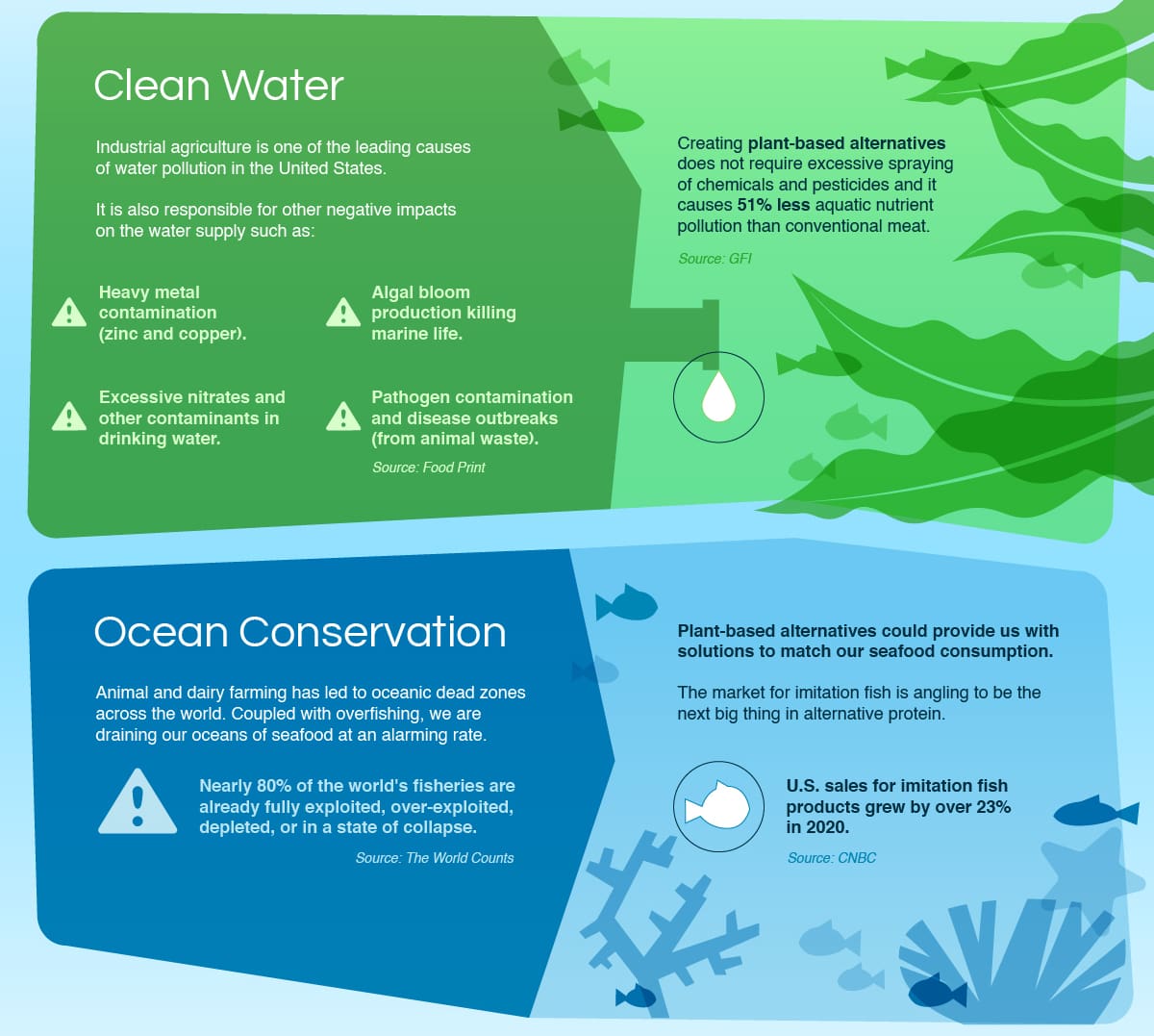As a society, we have long been advised to consume a balanced and varied diet to maintain our overall health and well-being. However, recent studies have brought to light the potential health risks associated with consuming certain animal-based products, such as meat and dairy. While these food items have been a staple in many diets and cultures, it is important to understand the potential negative impacts they can have on our bodies. From increased risk of heart disease to potential exposure to harmful hormones and bacteria, the consumption of meat and dairy products has been linked to various health concerns. In this article, we will delve into the potential health risks associated with consuming meat and dairy, as well as explore alternative dietary options that may benefit both our own health and the health of our planet. With a professional tone, we will examine the evidence and provide valuable insights for individuals looking to make informed choices about their dietary habits. It is time to take a closer look at the foods we consume and the potential consequences they may have on our health.
Is Meat and Dairy Necessary for Good Health?
Contrary to common belief, humans have no essential nutritional requirement for consuming animal products. A carefully planned, animal-free diet can adequately meet all nutritional needs at every stage of life, including infancy and childhood. For example, cow’s milk is naturally formulated to support the rapid growth of calves—which double their weight in just 47 days and develop multiple stomachs—rather than human infants, who grow much more slowly and have different digestive needs. Cow’s milk contains roughly three times more protein and nearly 50% more fat than human milk, making it unsuitable as a primary nutrition source for humans.
Moreover, consumption of meat and dairy products has been scientifically linked to numerous chronic diseases, including heart disease, various cancers, diabetes, arthritis, and osteoporosis. Animal-derived cholesterol and saturated fats contribute to arterial plaque buildup, increasing the risk of heart attacks and strokes. Epidemiological studies show that cancer rates such as colon, breast, and prostate cancer are higher in populations with greater meat consumption. Likewise, vegetarians tend to have a significantly lower risk of diabetes, and some meat- and dairy-free communities report nearly no cases of rheumatoid arthritis.
Therefore, eliminating animal products from the diet is not only safe but also offers important benefits for personal health, animal welfare, and environmental sustainability.
In the following sections, we will provide a detailed examination of the health risks associated with consuming meat and dairy products, reviewing scientific evidence on their impact on cardiovascular disease, various cancers, obesity, and other chronic conditions. We will also discuss plant-based alternatives and their benefits for both health and the environment.
Increased risk of heart disease
Numerous studies have highlighted the concerning link between the consumption of meat and dairy products and an increased risk of heart disease. High intake of saturated fats found in these animal products can lead to elevated cholesterol levels and the buildup of plaque in the arteries, a condition known as atherosclerosis. This narrowing of the arteries can obstruct blood flow to the heart, increasing the risk of heart attacks and other cardiovascular complications. Additionally, the high sodium content in processed meats can contribute to high blood pressure, another risk factor for heart disease. It is crucial to be aware of these health risks associated with the consumption of meat and dairy products and consider implementing dietary changes to reduce the risk of developing heart disease.
Can lead to high cholesterol
Consuming meat and dairy products has been strongly linked to the development of high cholesterol levels, a significant risk factor for heart disease. These animal-derived foods are often rich in saturated fats, which can raise LDL (bad) cholesterol levels in the body. High cholesterol can lead to the deposition of plaque in the arteries, narrowing them and restricting the flow of blood to vital organs, including the heart. This can ultimately increase the likelihood of cardiovascular problems such as heart attacks and strokes. It is important to be mindful of the potential impact of meat and dairy consumption on cholesterol levels and consider healthier alternatives to protect cardiovascular health.
Linked to certain cancers
Several studies have indicated a potential link between the consumption of meat and dairy products and an increased risk of certain cancers. While more research is needed to establish a definitive causal relationship, evidence suggests that diets high in animal-based products may contribute to the development of colorectal, prostate, and breast cancers. Factors such as the presence of hormones, saturated fats, and carcinogenic compounds in these foods have been implicated in the potential cancer risk. Therefore, it is prudent to consider the impact of meat and dairy consumption on overall health and explore alternative dietary choices that may lower the risk of these types of cancers.
1. Colorectal Cancer
Colorectal cancer has the strongest and most well-established association with red and processed meat consumption. Multiple large-scale studies and meta-analyses have shown a dose-dependent increase in colorectal cancer risk with higher intake of processed meats such as sausages, ham, and bacon (Chan et al., 2011). The formation of N-nitroso compounds (NOCs) during processing or digestion is a key mechanism thought to contribute to this increased risk.
2. Pancreatic Cancer
Pancreatic cancer is one of the deadliest cancers, and several epidemiological studies suggest a positive association between the intake of red and processed meats and pancreatic cancer incidence. A meta-analysis by Larsson and Wolk (2012) found that higher consumption of processed meat was linked to an increased risk. Potential mechanisms include oxidative stress from heme iron and exposure to carcinogenic compounds formed during high-temperature cooking.
3. Stomach (Gastric) Cancer
Processed meats are often high in nitrates and nitrites, which can convert into carcinogenic N-nitroso compounds in the acidic environment of the stomach. These compounds have been implicated in gastric cancer, particularly in populations with diets rich in smoked, salted, or preserved meats (Bouvard et al., 2015).
4. Prostate Cancer
Some observational studies have identified a potential link between red meat consumption—especially grilled or pan-fried meats—and prostate cancer. While evidence is not as strong as for colorectal cancer, the formation of heterocyclic amines (HCAs) during high-temperature cooking is believed to play a role in DNA damage and carcinogenesis (Cross et al., 2007).
5. Breast Cancer
Although evidence is less consistent, some cohort studies suggest that high red meat intake, particularly during adolescence or early adulthood, may increase the risk of breast cancer later in life. Potential mechanisms include hormone exposure, such as exogenous estrogens in meat, and the carcinogens formed during cooking.
May contribute to obesity
In addition to the potential cancer risks, it is worth noting that the consumption of meat and dairy products may also contribute to obesity. These foods tend to be high in calories, saturated fats, and cholesterol, which can lead to weight gain when consumed in excess. Furthermore, the processing and preparation methods commonly used for meat and dairy products, such as frying or adding excessive amounts of sugar or oil, can further contribute to their calorie content. Studies have shown that individuals who consume diets rich in animal-based products are more likely to have a higher body mass index and an increased risk of obesity-related health conditions such as diabetes and cardiovascular disease. Therefore, it is important to be mindful of the quantity and quality of meat and dairy products consumed as part of a balanced and healthy diet.
Potential for foodborne illnesses
The consumption of meat and dairy products also presents a potential risk of foodborne illnesses. These products can become contaminated with harmful bacteria, such as Salmonella, E. coli, and Listeria, during various stages of production, processing, and distribution. Improper handling, inadequate storage conditions, and cross-contamination can all contribute to the growth and spread of these bacteria. When consumed, these pathogens can cause a range of symptoms, including nausea, vomiting, diarrhea, abdominal pain, and in severe cases, even hospitalization or death. Therefore, it is crucial to handle, cook, and store meat and dairy products properly to minimize the risk of foodborne illnesses and ensure the safety of consumers.
Negative impact on gut health
Consuming meat and dairy products can have a negative impact on gut health. These products, particularly those that are high in saturated fat and cholesterol, have been linked to an increased risk of digestive disorders, such as irritable bowel syndrome (IBS) and inflammatory bowel disease (IBD). The excessive intake of animal-based products can disrupt the balance of beneficial bacteria in the gut, leading to inflammation and a compromised immune system. Furthermore, the heavy processing and additives often present in these products can further irritate the digestive system, exacerbating symptoms and contributing to long-term gut health issues. It is important to consider the potential consequences on gut health when making dietary choices and to prioritize a balanced and plant-based approach to promote optimal digestive well-being.
Possible hormone and antibiotic exposure
Possible hormone and antibiotic exposure is another concern associated with consuming meat and dairy products. Livestock animals are often given hormones and antibiotics to promote growth and prevent diseases. These substances can accumulate in the animal’s tissues and end up in the meat and dairy products consumed by humans. While there are regulations in place to limit the use of certain hormones and antibiotics in food production, there is still a risk of exposure. Studies have shown that hormone exposure from meat and dairy products can disrupt the hormonal balance in our bodies and potentially contribute to hormonal disorders. Additionally, the overuse of antibiotics in animal agriculture can contribute to the development of antibiotic-resistant bacteria, which poses a serious threat to human health. It is crucial to be aware of these potential risks and consider alternatives, such as organic or hormone-free meat and dairy products, to minimize exposure and promote a healthier lifestyle.
Environmental and ethical concerns
In addition to the health-related implications, the consumption of meat and dairy products raises significant environmental and ethical concerns. Livestock production is a major contributor to global environmental degradation, including greenhouse gas emissions, deforestation, biodiversity loss, and water pollution.
According to a landmark report by the Food and Agriculture Organization (FAO) of the United Nations, the livestock sector is responsible for approximately 14.5% of global greenhouse gas emissions, primarily in the form of methane (CH₄), nitrous oxide (N₂O), and carbon dioxide (CO₂), which are more potent than CO₂ in terms of their global warming potential (Gerber et al., 2013). Ruminants such as cows are especially significant contributors due to enteric fermentation, a digestive process that produces methane.
Moreover, the production of animal-based foods is highly resource-intensive. For instance, producing 1 kilogram of beef requires approximately 15,000 liters of water, compared to just 1,250 liters for 1 kilogram of maize. Large-scale animal farming also contributes to deforestation, particularly in regions such as the Amazon, where forests are cleared to make way for cattle grazing or the production of soy feed for livestock.
From an ethical standpoint, industrial animal agriculture has been criticized for its treatment of animals, often involving confinement in intensive farming systems, limited mobility, and lack of natural behaviors. Growing awareness of animal welfare concerns has led to increased scrutiny of factory farming practices and has spurred interest in plant-based diets, cell-based meats, and sustainable food systems.
These environmental and ethical challenges underscore the importance of re-evaluating dietary choices—not only for personal health but also for the sustainability of the planet and the well-being of non-human animals.
Nutrient deficiencies without proper balance
One important consideration when it comes to dietary choices is the potential risk of nutrient deficiencies without proper balance. While meat and dairy products can be significant sources of certain nutrients, such as protein, calcium, and vitamin B12, relying solely on these food groups can lead to imbalances in essential nutrients. For example, excessive consumption of red and processed meats has been linked to increased risk of heart disease and certain types of cancer, while excessive intake of dairy products can contribute to high cholesterol levels and lactose intolerance in some individuals. It is crucial to ensure a diverse and well-rounded diet that includes a variety of plant-based foods, such as fruits, vegetables, whole grains, legumes, and nuts, to obtain a wide range of essential vitamins, minerals, and antioxidants. Seeking guidance from a registered dietitian can help ensure a balanced and nutrient-rich diet that supports optimal health.
Plant-based alternatives offer benefits
In light of the health, environmental, and ethical concerns associated with the consumption of animal-based foods, plant-based alternatives are increasingly being recognized for their nutritional advantages and sustainability. Diets centered around plant-derived foods—such as fruits, vegetables, legumes, whole grains, nuts, and seeds—have been associated with a wide range of health benefits, including lower risks of cardiovascular disease, type 2 diabetes, certain cancers, and obesity.
Nutritionally, plant-based diets tend to be higher in fiber, antioxidants, phytonutrients, and unsaturated fats, while being lower in saturated fat and cholesterol. These attributes contribute to improved metabolic profiles, including lower LDL cholesterol, better glycemic control, and healthier body weight. Importantly, plant-based diets can be nutritionally adequate and even optimal when appropriately planned to include essential nutrients such as vitamin B12, iron, calcium, and omega-3 fatty acids.
Beyond individual health, plant-based diets have a substantially lower environmental footprint. They require fewer natural resources—such as land and water—and result in significantly lower greenhouse gas emissions compared to animal-based diets. As such, shifting toward a plant-based eating pattern is increasingly promoted as a key strategy for addressing both public health and environmental sustainability.
Furthermore, the rise of plant-based meat and dairy alternatives, including products made from soy, pea protein, oats, almonds, and other plant sources, offers accessible options for individuals seeking to reduce their animal product intake without sacrificing taste or convenience. These alternatives, when minimally processed and part of a whole-foods diet, can support long-term health and dietary adherence.
The evidence is clear – consuming meat and dairy products on a regular basis can have negative impacts on our health. From increased risk of heart disease and certain cancers to contributing to antibiotic resistance, the health risks associated with these products cannot be ignored. As individuals, it is important that we educate ourselves and make informed choices about our diet to protect our health and well-being. Additionally, it is crucial for policymakers and food industries to prioritize the health of consumers and consider alternative, sustainable options for protein sources. By taking action, we can work towards a healthier future for ourselves and the planet.




FAQ
What are the potential health risks of consuming meat and dairy products, particularly in excessive amounts?
Consuming meat and dairy products in excessive amounts may increase the risk of various health issues. Excessive intake of red and processed meats has been linked to an increased risk of certain cancers, such as colorectal cancer. High consumption of saturated fats found in meat and dairy products can contribute to cardiovascular diseases and raise cholesterol levels. Excessive intake of animal products may also increase the risk of obesity, type 2 diabetes, and certain chronic conditions. However, it is important to note that moderation and a balanced diet can help mitigate these risks and provide essential nutrients found in animal products.
How does the consumption of processed meats and dairy products contribute to an increased risk of developing certain diseases, such as heart disease and certain types of cancer?
The consumption of processed meats and dairy products is associated with an increased risk of developing certain diseases due to the high content of saturated fats, cholesterol, sodium, and additives. These substances can contribute to the development of heart disease by raising levels of LDL cholesterol and increasing inflammation in the body. Additionally, processed meats contain nitrates and nitrites, which can form carcinogenic compounds, increasing the risk of certain types of cancer, including colorectal cancer. High intake of dairy products has been linked to an increased risk of prostate and breast cancers. Overall, limiting the consumption of processed meats and dairy products can help reduce the risk of these diseases.
Are there any specific health risks associated with consuming red meat compared to other types of meat or dairy products?
Yes, there are specific health risks associated with consuming red meat compared to other types of meat or dairy products. Red meat, especially when processed or cooked at high temperatures, has been linked to an increased risk of cardiovascular diseases, certain types of cancer (such as colorectal cancer), and type 2 diabetes. This is mainly due to its high content of saturated fat, cholesterol, and heme iron. In contrast, lean meats like poultry and fish, as well as plant-based protein sources like legumes and tofu, are generally considered healthier options with lower risks for these health issues. However, it’s important to note that moderation and balanced dietary choices are key for overall health.
Can a vegetarian or vegan diet help reduce the health risks associated with consuming meat and dairy products?
Yes, a vegetarian or vegan diet can help reduce the health risks associated with consuming meat and dairy products. This is because these diets typically include higher amounts of fruits, vegetables, whole grains, and plant-based proteins, which are all beneficial for health. Vegetarians and vegans often have lower cholesterol levels, reduced risk of heart disease, lower blood pressure, and lower rates of obesity. Additionally, they may have a lower risk of certain types of cancer, such as colon and breast cancer. However, it is important to ensure that a vegetarian or vegan diet is well-balanced and includes an adequate intake of essential nutrients such as vitamin B12, iron, and omega-3 fatty acids.
What are some alternative sources of protein and nutrients that can be included in a diet to replace meat and dairy products, while still maintaining a balanced and healthy lifestyle?
Some alternative sources of protein and nutrients that can be included in a diet to replace meat and dairy products include legumes (such as beans, lentils, and chickpeas), tofu, tempeh, seitan, quinoa, nuts, seeds, and certain vegetables (such as broccoli and spinach). These foods are rich in protein, fiber, vitamins, and minerals, and can provide the necessary nutrients to maintain a balanced and healthy lifestyle. Additionally, plant-based milk alternatives (such as almond milk, soy milk, and oat milk) can be consumed to replace dairy products.















































